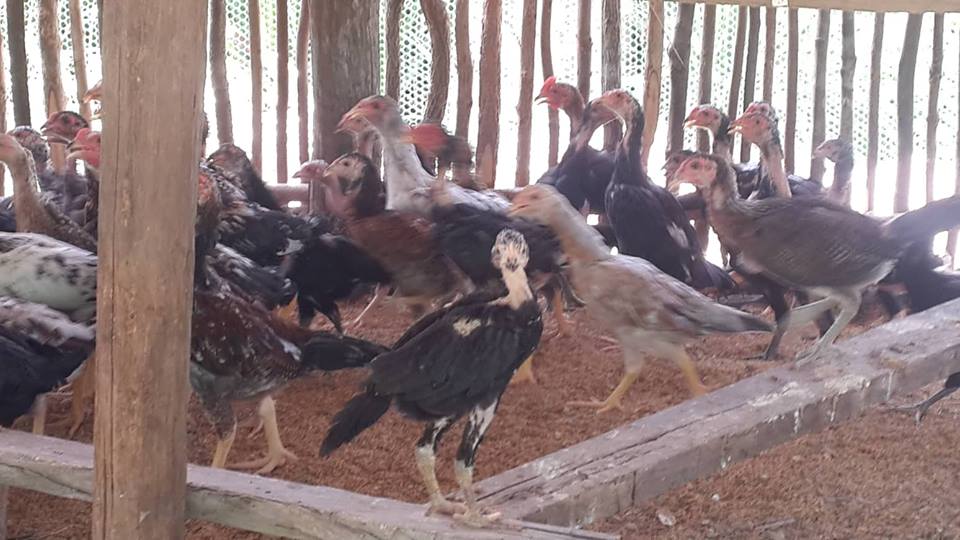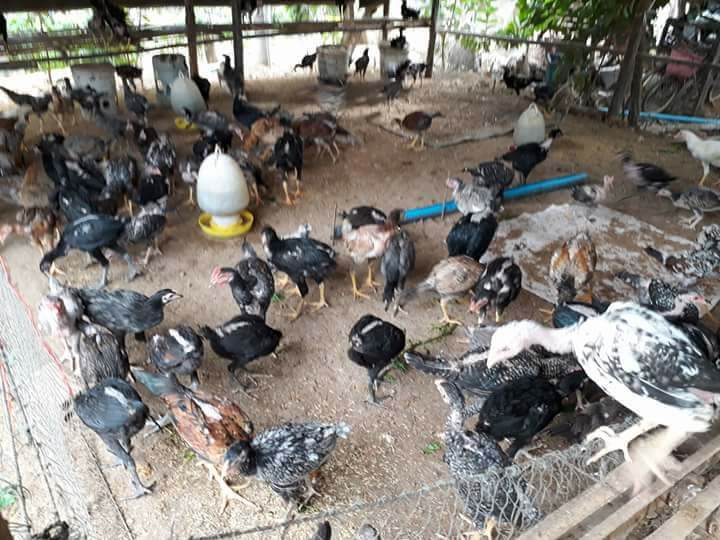Integrated Farming Project (IFP)
For 4 years Lotus funded, the ‘Appropriate Ways for Community Livelihood Improvement (AWCLI)’ project. During the 4 years READA’s-Lotus’ Project Manager worked hard, together with her team, to change the mindset of these communities from ‘waiting to be given donations’ to ‘being given support to help themselves’. These communities are situated between 40-60 km away from the town of Siem Reap.
In April 2016, after implementing the AWCLI I/II projects for 4 years, READA and Lotus jointly decided that the communities were ready to be taken to the next level and developed the Integrated Farming project. This project was implemented with 10 families.
The difference between the Integrated Farming Project (IFP) and the AWCLI projects is that families have been introduced to the concept of paying back 100% all tangible assistance given to them, such as irrigation material, seeds and chicks.
The families begin repaying back to the project once they start producing an income from their activities, but at the most within 12 months. The IFP project also provides training and hands-on assistance by an Agricultural Specialist and an Animal Specialist hired into the project, the READA-Lotus Project Manager and the two Field Officers.
The Agricultural Specialist, and the READA-Lotus project staff introduced the families to new ways of cultivating their land and taught them how to install and maintain irrigation systems. The families have also been introduced to the idea of planting good quality seeds (which give them a higher yield) and to growing different types of vegetables at different times of the year.
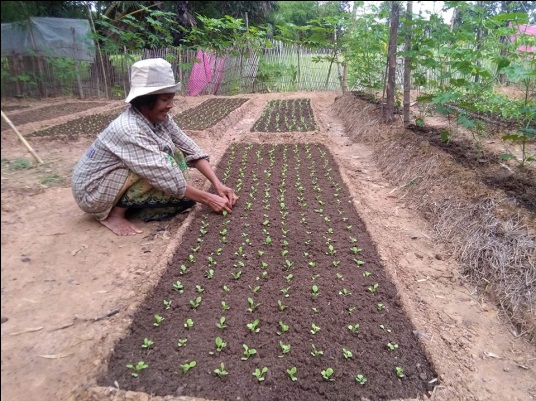
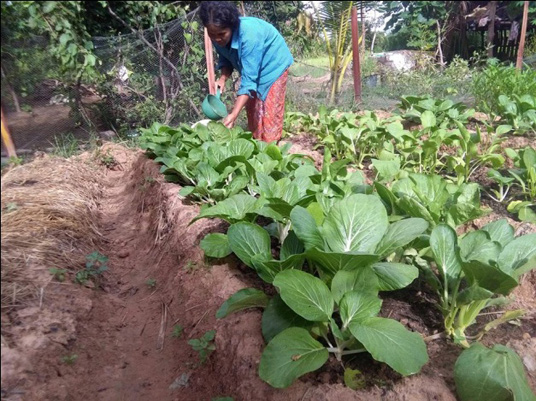
The Animal Specialist, and the READA-Lotus project staff, teach the families how to prepare clean and safe chicken coops, how to look after the chicks/chickens in a hygienic way and the importance of keeping them in a clean environment. They are also taught about the different types of chicken diseases and how best to avoid them, how to protect the chickens from diseases and from the surrounding environment and how to give the chickens the best and most nutritional feeds.
The Integrated Farming project (IFP1) was started as a 1 year pilot project with 10 families. The aim of the IFP1 project was to help the families (on average a family is 8-10 members comprising several generations) to increase their income generation and become more self-sufficient.
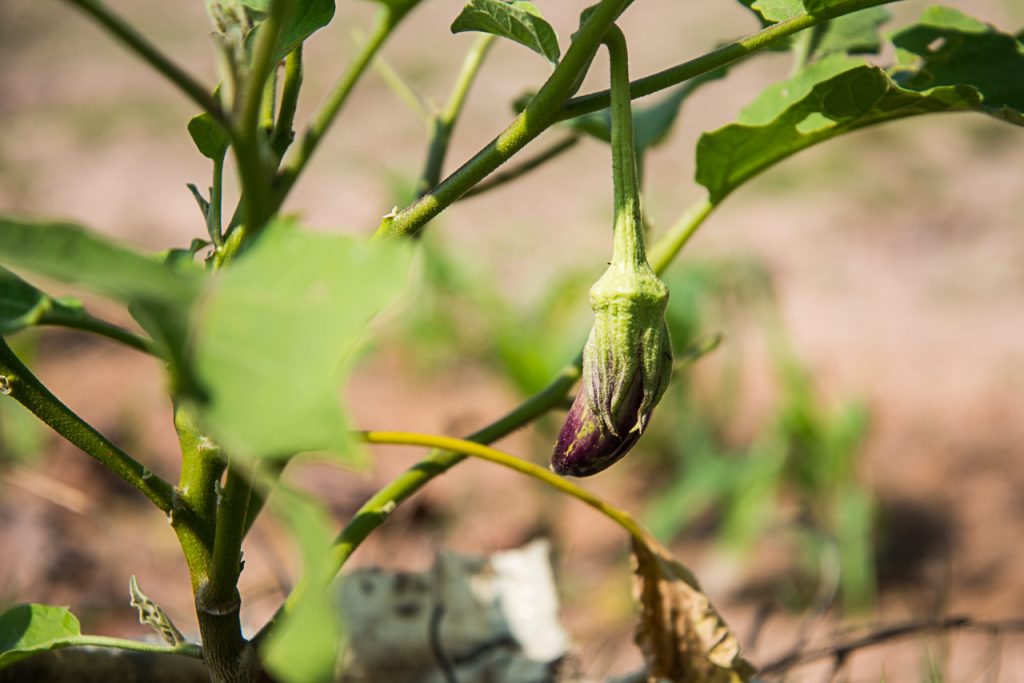
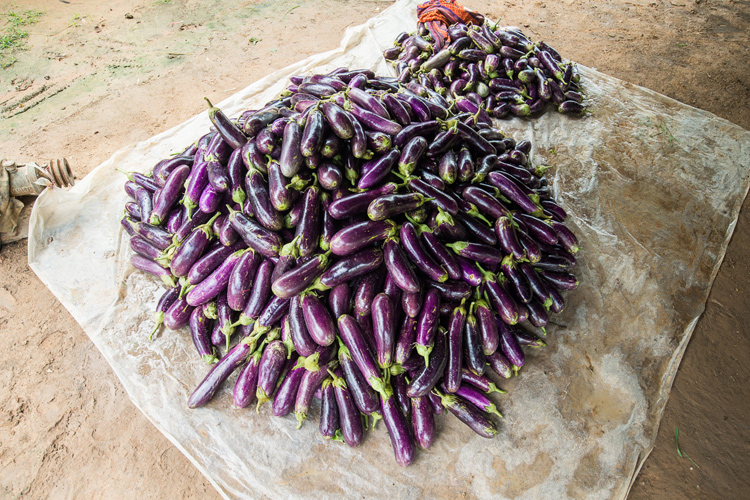
The IFP1 pilot project was completed with most of the families improving their income by raising chickens and selling them and by growing a diverse mix of vegetables 3/4 times a year. All tangible assistance given to the 10 families was totally repaid back to the project.
Based on the overwhelming success of the IFP1 pilot project Lotus, jointly with READA, decided to go ahead with a further 1 year Integrated Farming Project (IFP2 project) with new families. The number of families in the IFP2 project has been increased to 40 (approximately 400 people).
The multiplier effect has started to take roots!
